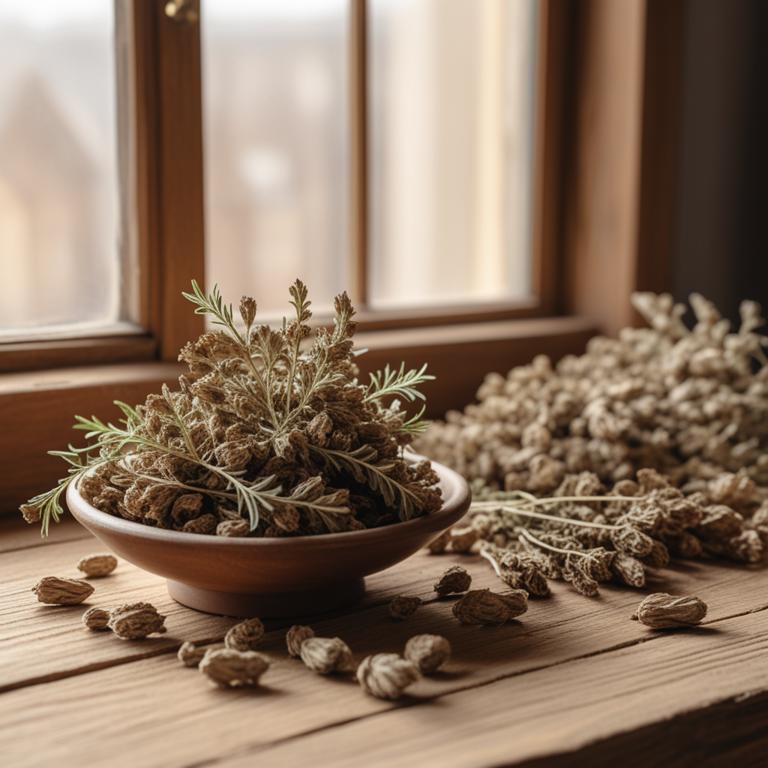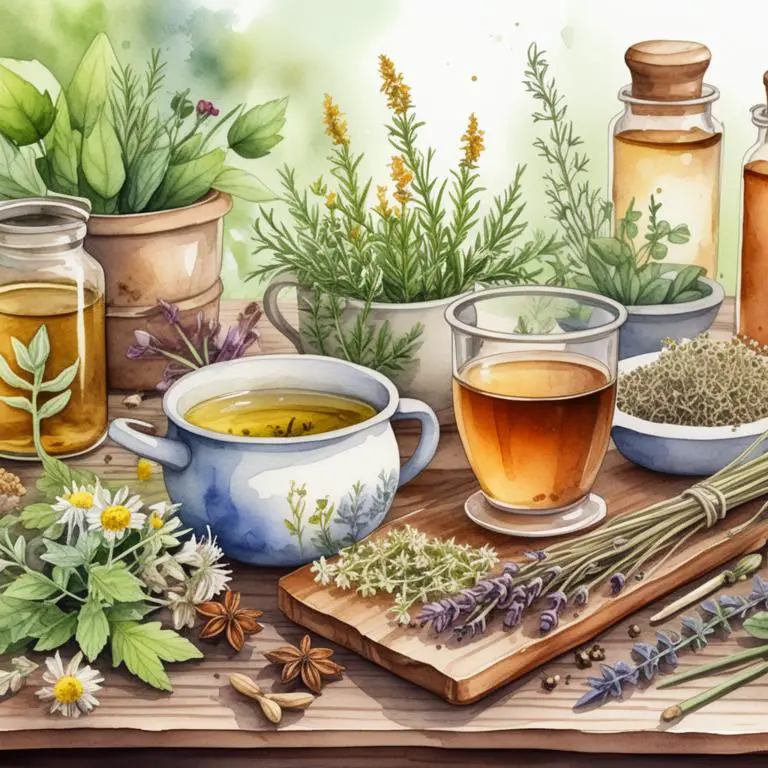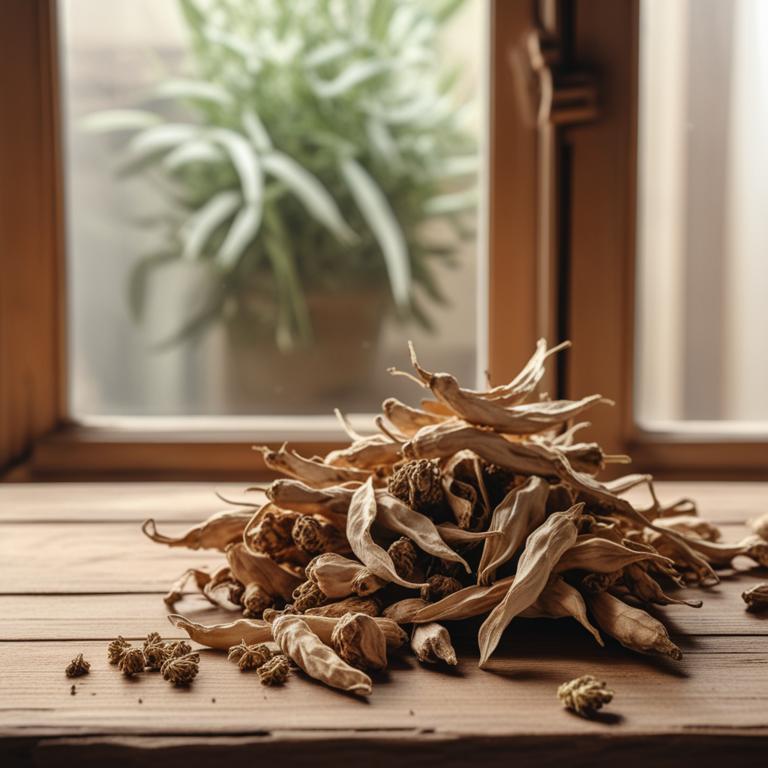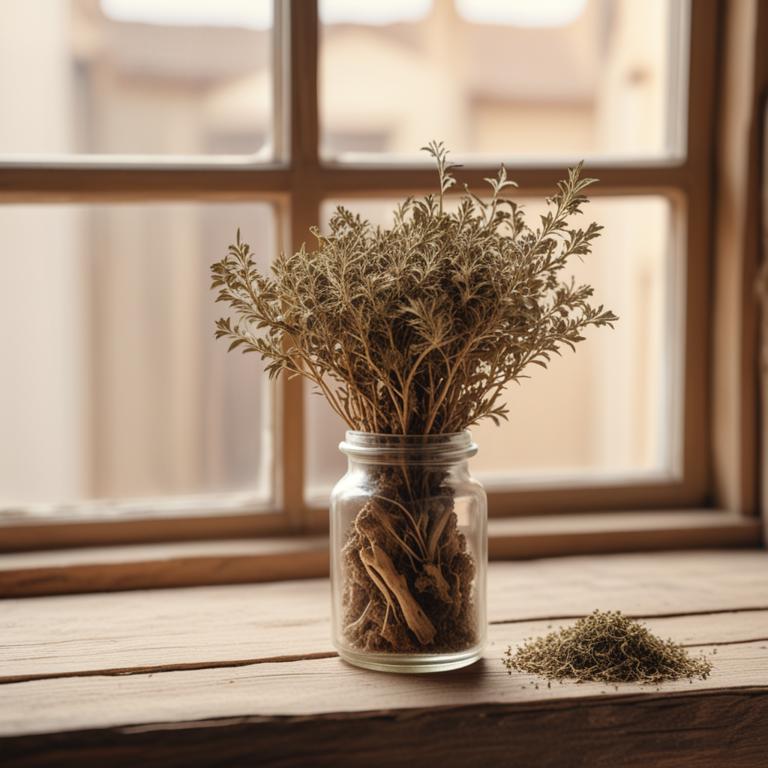Updated: Dec 1, 2024
Diarrhea: Causes, Prevention, and Herbal Remedies
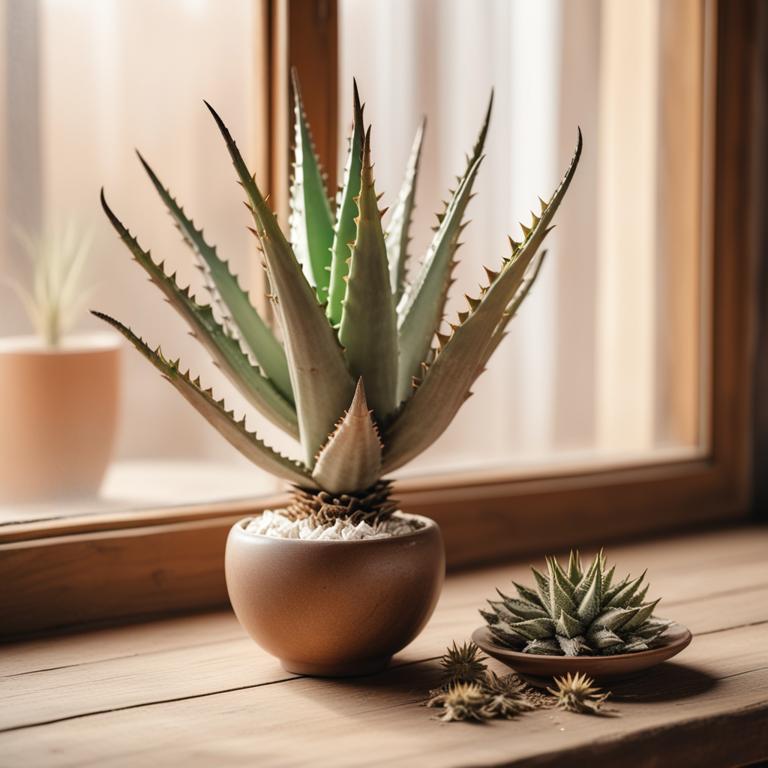
Diarrhea is a common problem that affects many people.
It's when you have loose, watery stools that can be uncomfortable and disrupt your daily life. You might feel weak, dizzy, and have stomach cramps. Diarrhea can be caused by eating contaminated food, food allergies, or viral infections like norovirus or rotavirus. It can also be triggered by stress, antibiotics, or certain medications.
Herbal remedies can help soothe and calm the digestive system. Herbs like peppermint, chamomile, and ginger have anti-inflammatory properties that can reduce inflammation in the digestive tract. Peppermint tea, for example, can ease cramps and spasms in the stomach, while chamomile tea can calm the nerves and promote relaxation. Ginger tea can help reduce nausea and vomiting. You can also try herbal infusions like slippery elm, which coats and protects the mucous membranes in the digestive tract, or licorice root, which has anti-inflammatory properties that can soothe the gut.
Some people also find relief with herbal supplements like probiotics, which contain beneficial bacteria that can help regulate digestion.
Table of Contents
What are the factors that cause diarrhea?
The main causes of diarrhea are often linked to infections and other issues that affect the digestive system.
Gastroenteritis, often caused by a viral or bacterial infection, is a major reason for diarrhea. This condition inflames the stomach and intestines, causing them to produce more fluid and leading to diarrhea. Food poisoning is another common cause of diarrhea. This occurs when food is contaminated with bacteria such as Salmonella or E. coli, or viruses like norovirus. These pathogens can cause the body to produce more fluid and lead to diarrhea.
Viral infections, like norovirus and rotavirus, can cause diarrhea by inflaming the stomach and intestines. These viruses can spread quickly and easily, especially in areas with poor sanitation. Bacterial infections, such as those caused by E. coli and Salmonella, can also cause diarrhea. These bacteria can be found in food, water, and even on surfaces, and can easily enter the body through the mouth or a cut. Parasitic infections, such as giardiasis, can also lead to diarrhea.
These parasites can be found in contaminated water or food, and can infect the body through the mouth or through contact with an infected person.
What are the benefits of using herbal remedies for diarrhea?
Using herbs for diarrhea can be really helpful.
They can calm your stomach and stop the diarrhea from getting worse. Some herbs have anti-inflammatory properties, which can reduce the swelling and irritation in your intestines. This can help ease the pain and discomfort you're feeling.
Some herbs also have antibacterial properties, which can help kill the bad bacteria that might be causing the diarrhea. This can help your body recover faster and get rid of the infection. Additionally, some herbs can help replace the lost fluids and electrolytes in your body, which can prevent dehydration and other complications.
They can also help regulate your bowel movements and prevent future episodes of diarrhea.
What are the main medicinal herbs for diarrhea relief?

Herbs have been used for centuries to treat various health issues, including diarrhea.
One herb that's often used is Zingiber officinale, also known as ginger. It helps to calm the stomach and reduce nausea, making it easier to manage diarrhea. Ginger also has anti-inflammatory properties that can help to soothe the digestive tract. Another herb that's commonly used is Glycyrrhiza glabra, or licorice root. It has a natural anti-inflammatory effect that can help to reduce inflammation in the digestive system, which can contribute to diarrhea. Licorice root also helps to regulate the stomach's acid levels, making it easier to digest food. Cinchona officinalis, or cinchona bark, is another herb that's been used to treat diarrhea.
It contains a compound called quinine, which has antimicrobial properties that can help to reduce the growth of bacteria and other microorganisms in the digestive system. This can help to alleviate diarrhea caused by infections. Foeniculum vulgare, or fennel, is a herb that's often used to calm the digestive system. It has a natural anti-inflammatory effect and can help to reduce spasms in the digestive tract. Fennel also has a soothing effect on the stomach, making it easier to manage diarrhea. Finally, Curcuma longa, or turmeric, is an herb that's rich in antioxidants. It has anti-inflammatory properties that can help to reduce inflammation in the digestive system and alleviate symptoms of diarrhea. Turmeric also has antimicrobial properties, which can help to reduce the growth of bacteria and other microorganisms in the digestive system.
In general, these herbs can be used in various forms, such as teas, capsules, or tinctures, and can be consumed on their own or combined with other herbs for a more effective treatment.
Which herbal formulas are most frequently used to combat diarrhea?
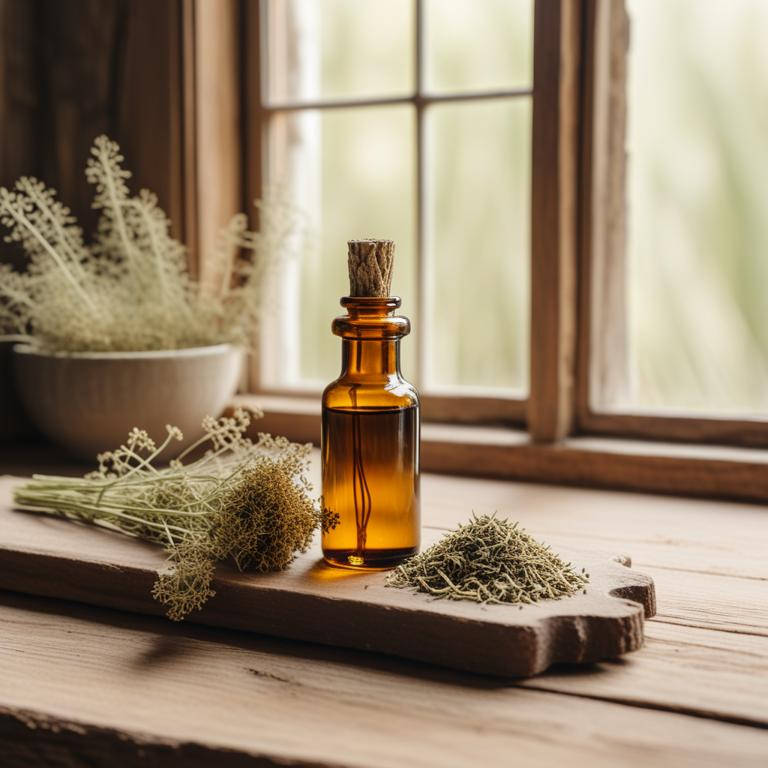
Herbal preparations can be very helpful in managing diarrhea.
A decoction is a strong tea made by boiling herbs in water, which is great because it can easily extract the active ingredients from the herbs, making them effective in treating diarrhea. This is especially useful for herbs like slippery elm, which helps to soothe and protect the lining of the digestive tract. An infusion, on the other hand, is a weak tea made by steeping herbs in hot water. This is a good option for delicate herbs that can lose their potency if boiled, like peppermint, which can help to calm the digestive system and reduce symptoms of diarrhea.
Herbal capsules are another way to take herbal remedies. They contain dried and powdered herbs, which are easy to swallow and can be made from a variety of herbs, including licorice root, which has anti-inflammatory properties that can help to soothe and heal the digestive tract. A tincture is a liquid extract of herbs, which can be taken in a small amount of water. Tinctures are often used for herbs like ginger, which has anti-inflammatory properties that can help to reduce nausea and vomiting associated with diarrhea. Finally, herbal suppositories can be inserted into the rectum to treat diarrhea.
This is a good option for herbs like aloe vera, which can help to soothe and calm the digestive tract, and reduce inflammation and irritation.
Additional Resources:
If you're suffering from diarrhea, which herbs should you not use?
If you have diarrhea, it's best to be careful with certain herbs.
Gelsemium sempervirens, for example, is often used to treat fever and pain, but it can make diarrhea worse by irritating your gut. This is because it has strong compounds that can speed up bowel movements and make symptoms worse. Ephedra sinica is another herb to avoid. It's commonly used to boost energy and improve circulation, but it can also dry out your body and make diarrhea even more uncomfortable. When you're already dealing with loose stools, the last thing you want is to lose even more fluids.
Valeriana officinalis is often used to calm the mind and body, but it can have the opposite effect on your digestive system. Its active compounds can cause stomach cramps and make diarrhea worse, so it's best to steer clear of it when you're experiencing digestive issues. Berberis vulgaris may be used to treat various health problems, but it's not suitable for people with diarrhea. Its compounds can irritate your digestive tract and make symptoms even more severe. This can lead to dehydration and other complications if not addressed properly. Echinacea purpurea is often used to boost the immune system, but it can have negative effects on your digestive system if you have diarrhea.
Its compounds can cause stomach upset and make diarrhea even more uncomfortable, which is the last thing you need when you're already dealing with loose stools.
FAQ
Are there any specific herbs that can prevent diarrhea?
Some herbs like slippery elm and aloe vera can help soothe the digestive system and prevent diarrhea.
Slippery elm forms a protective barrier on the stomach and intestines, while aloe vera has anti-inflammatory properties that can calm irritated tissues.
They can be consumed as teas or added to food.
Is it safe to use herbal remedies for diarrhea during pregnancy?
When pregnant, it's best to avoid herbal remedies for diarrhea unless you've tried them before and know they're safe.
Some herbs can cause complications or interact with medications.
If you do choose to use herbal remedies, opt for ones that are made from gentle ingredients like peppermint or chamomile, and use them as directed.
Are there any herbs that can reduce the frequency of diarrhea?
Ginger is known to help reduce diarrhea.
It has anti-inflammatory properties that can calm the stomach and intestines. Peppermint oil can also help soothe the digestive system. Fennel seeds have a natural ability to ease cramps and gas, which can contribute to diarrhea.
These herbs may help alleviate diarrhea by promoting a more balanced digestive system.
Related Articles
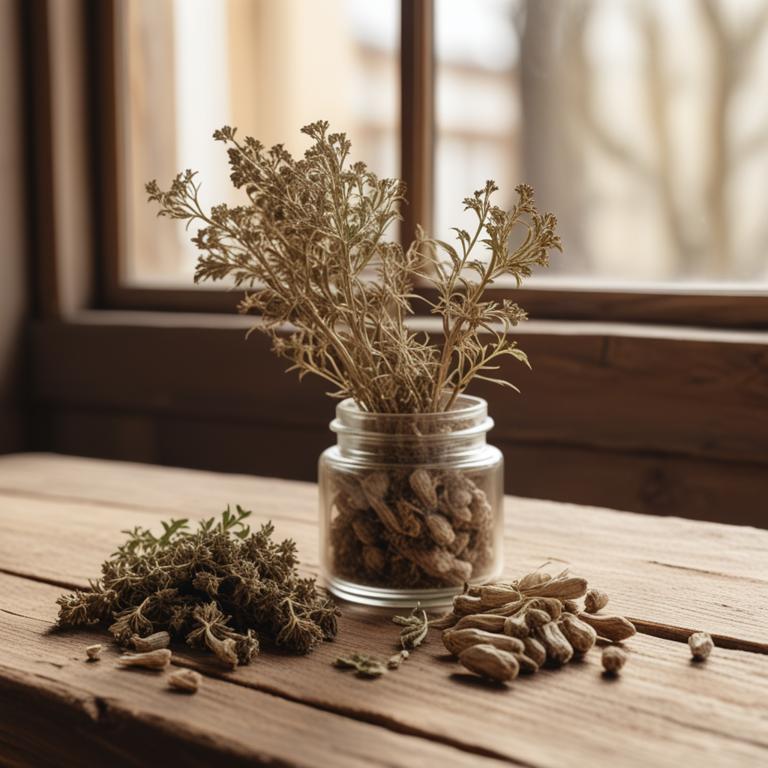
Queasy Stomach Causes and Herbal Remedies: A Comprehensive Guide
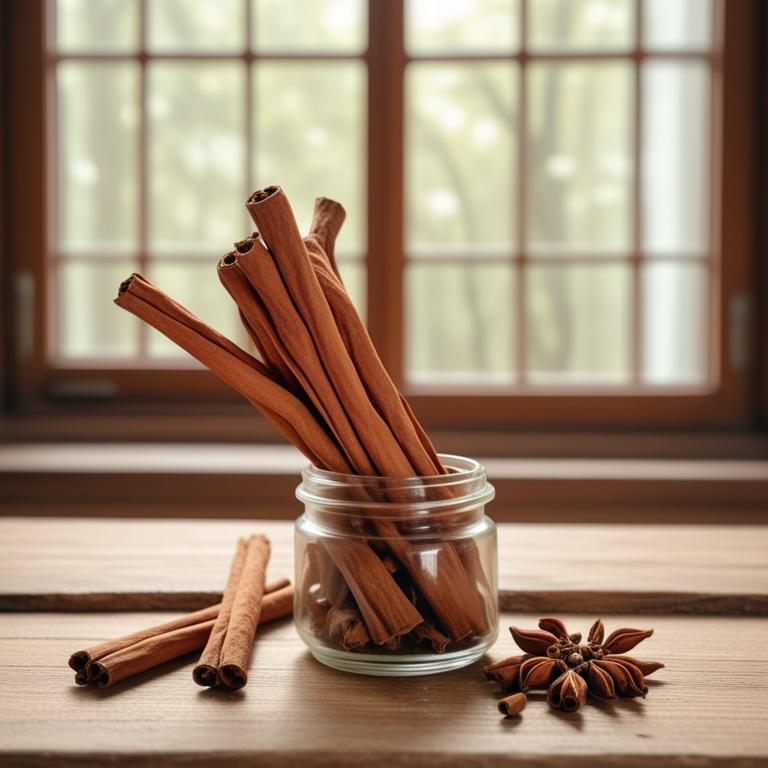
Mucus in Stomach: Understanding the Causes and Medicinal Herbs for Relief
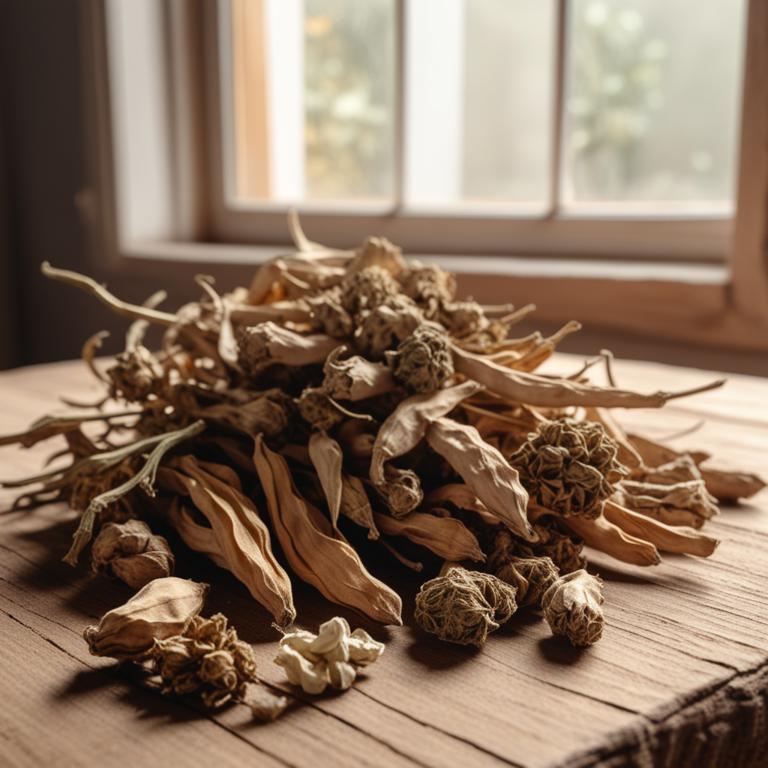
Gerd: Understanding the Causes and Benefits of Herbal Remedies
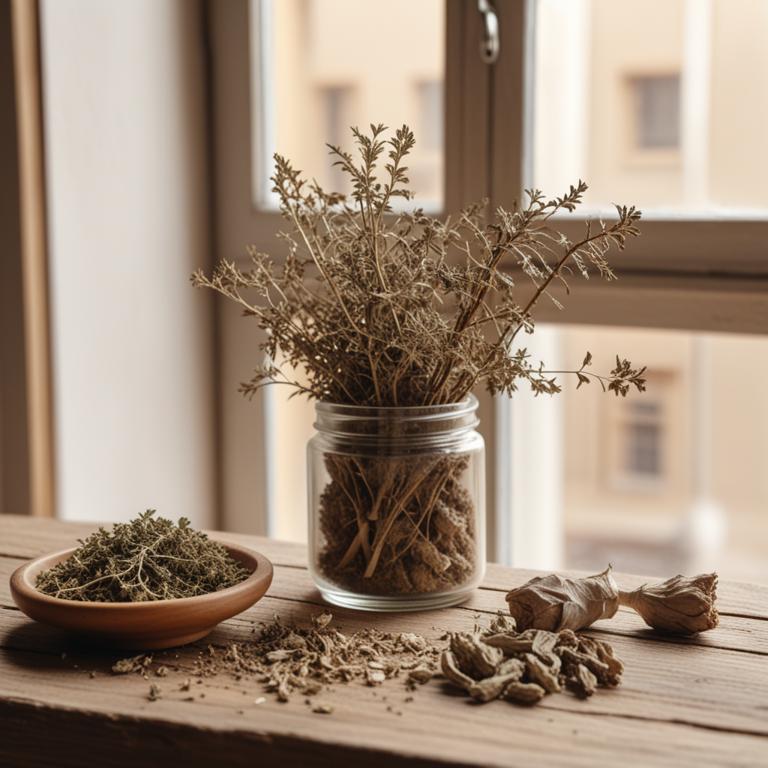
Herbal Relief for Upset Stomach: Causes, Medicinal Herbs, and Preparations

Vomiting: Understanding the Causes and Natural Remedies with Medicinal Herbs and Herbal Preparations
